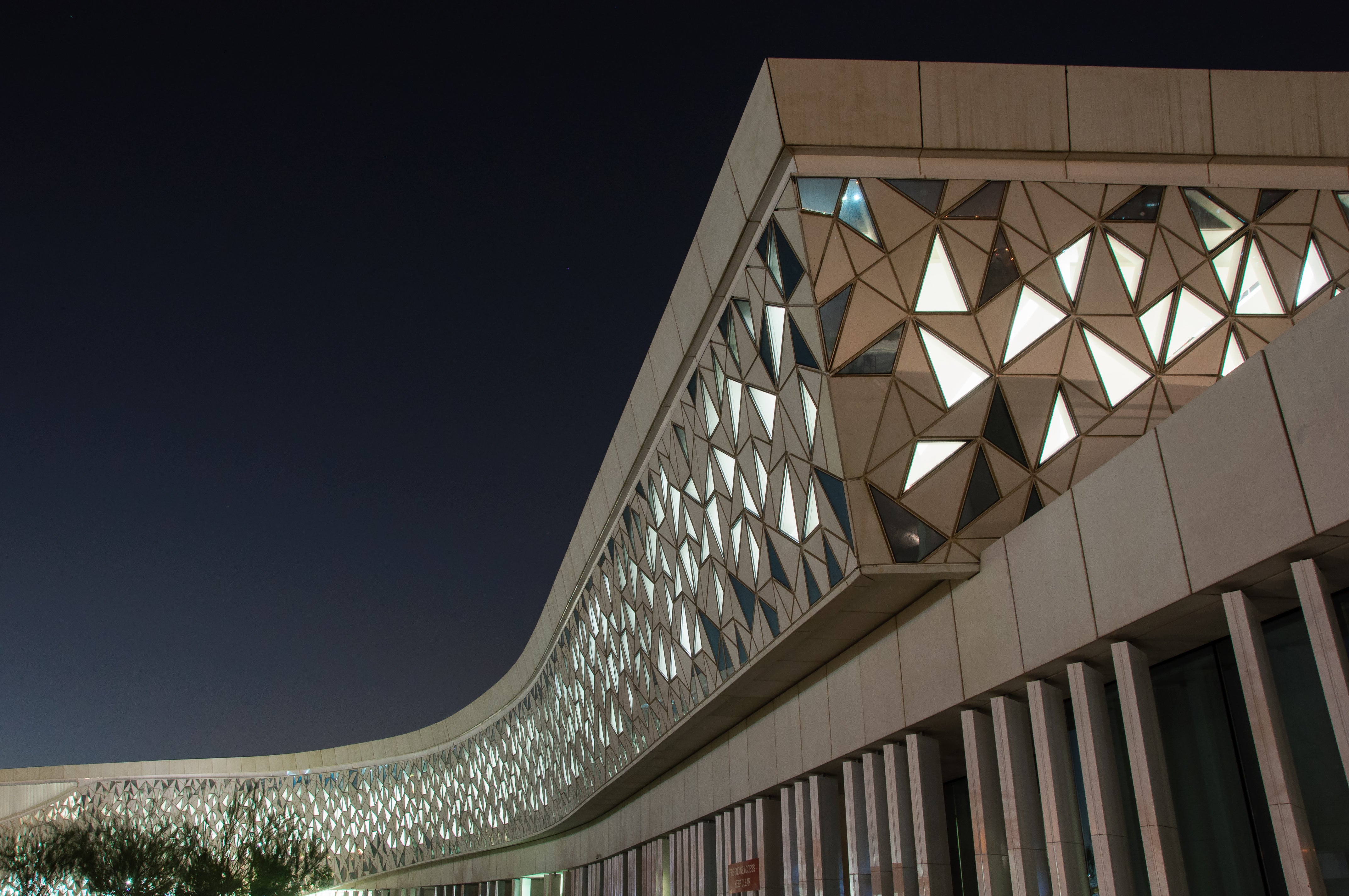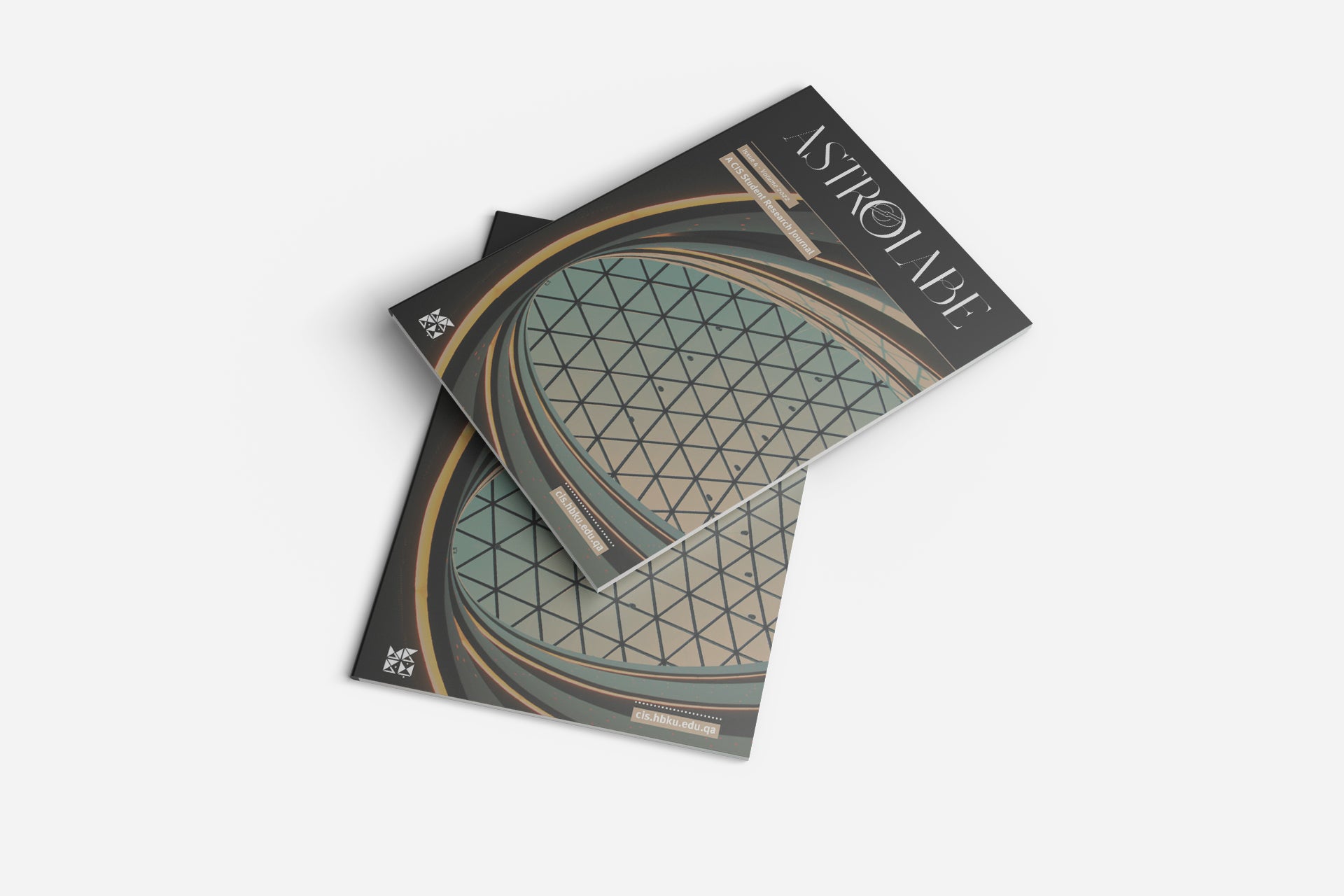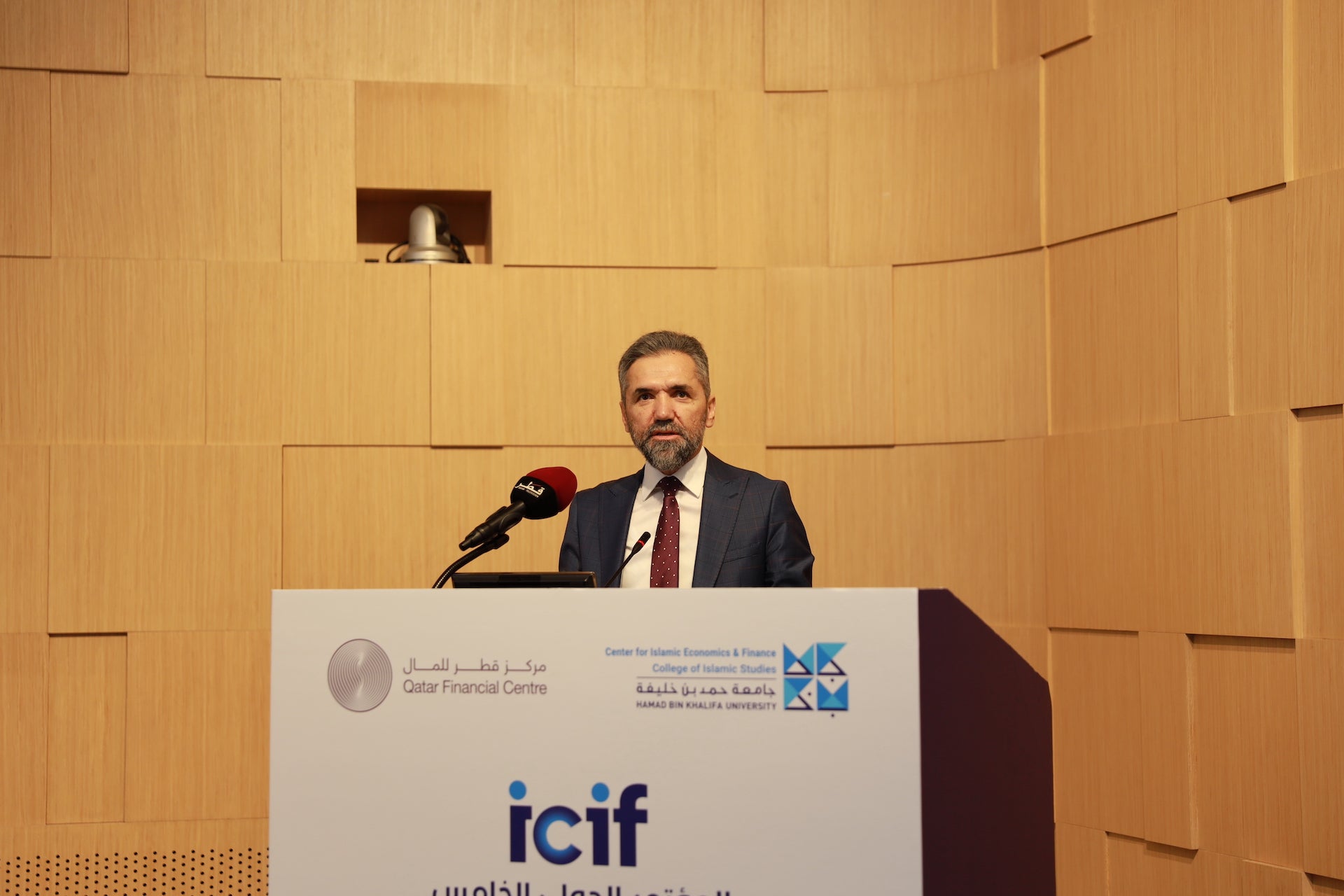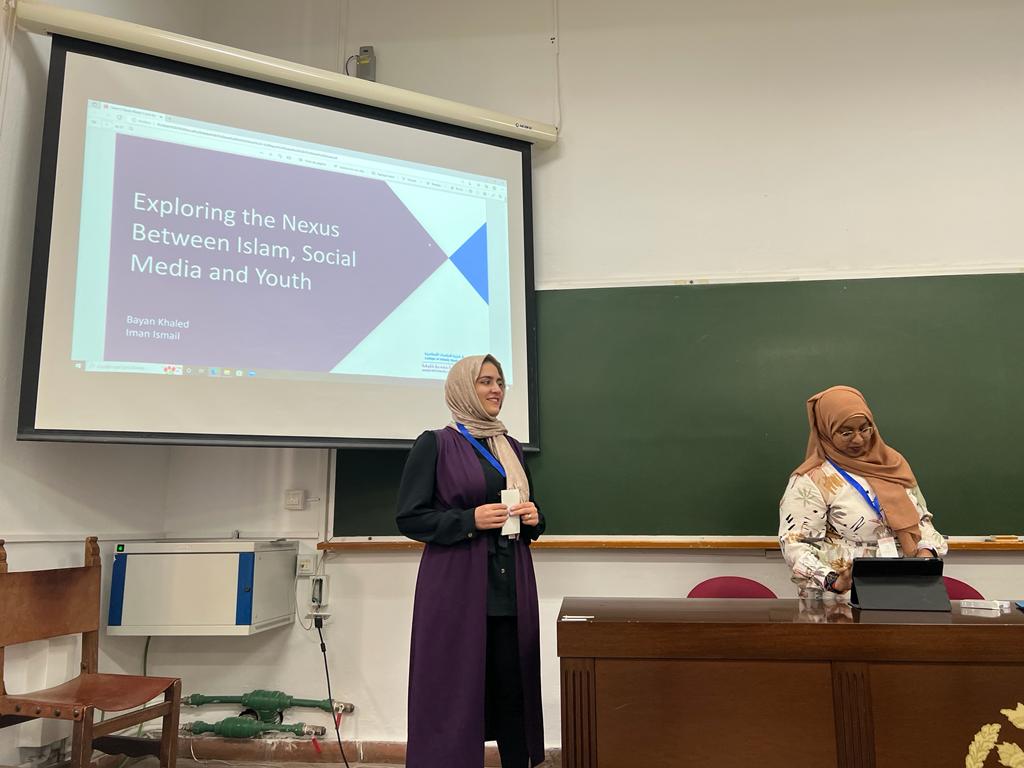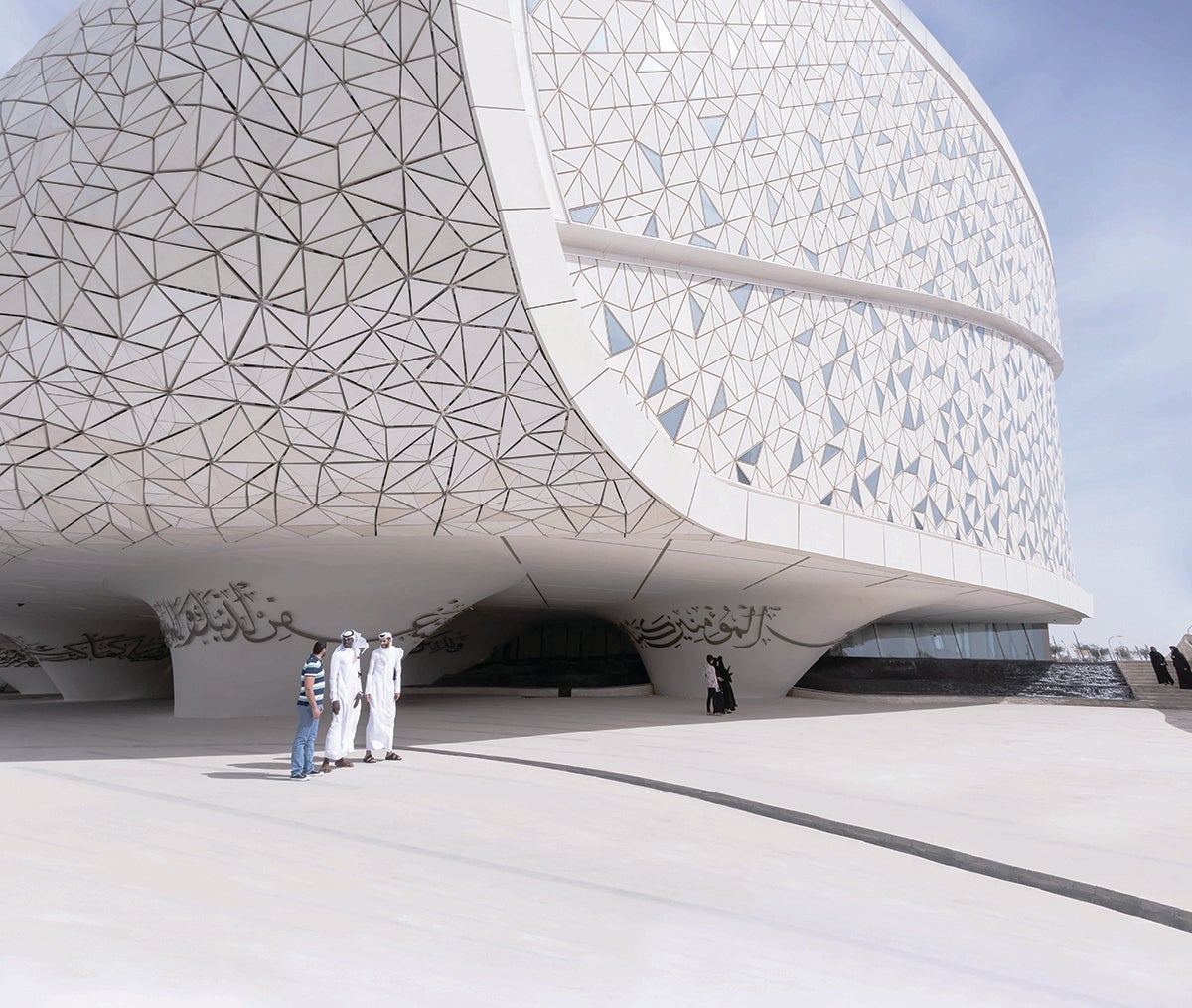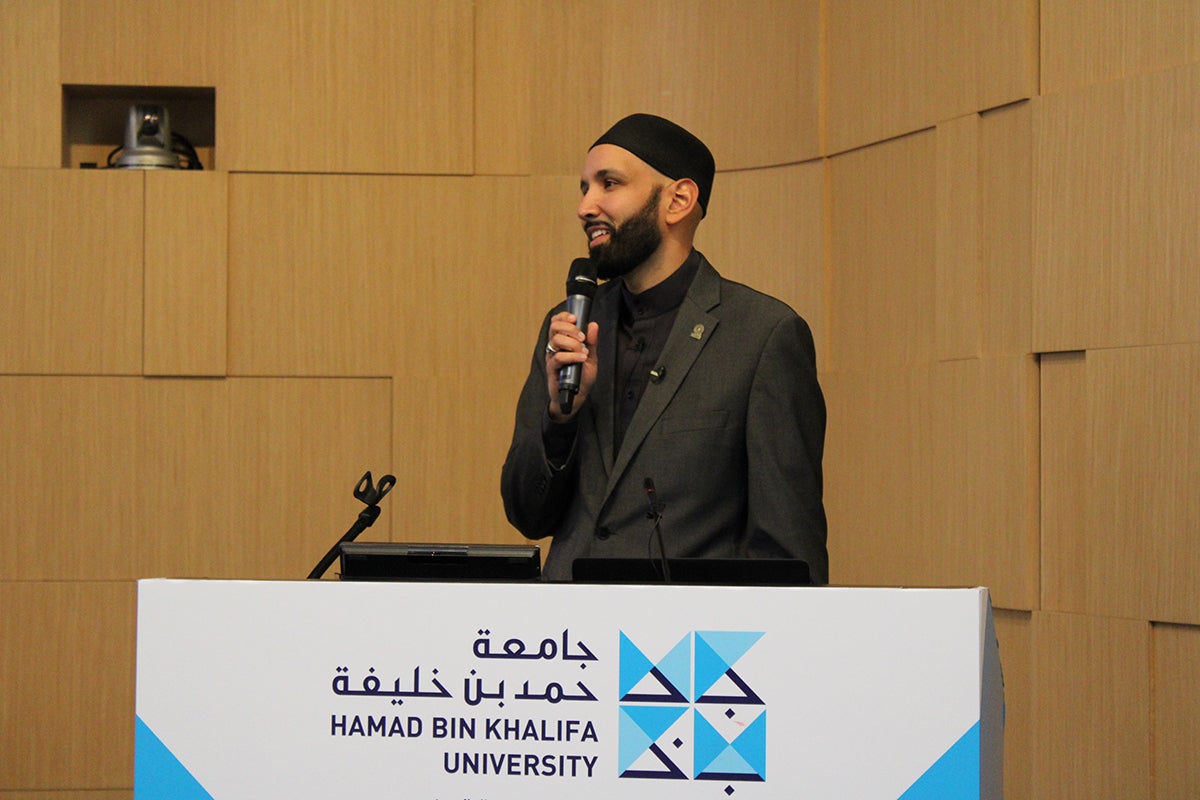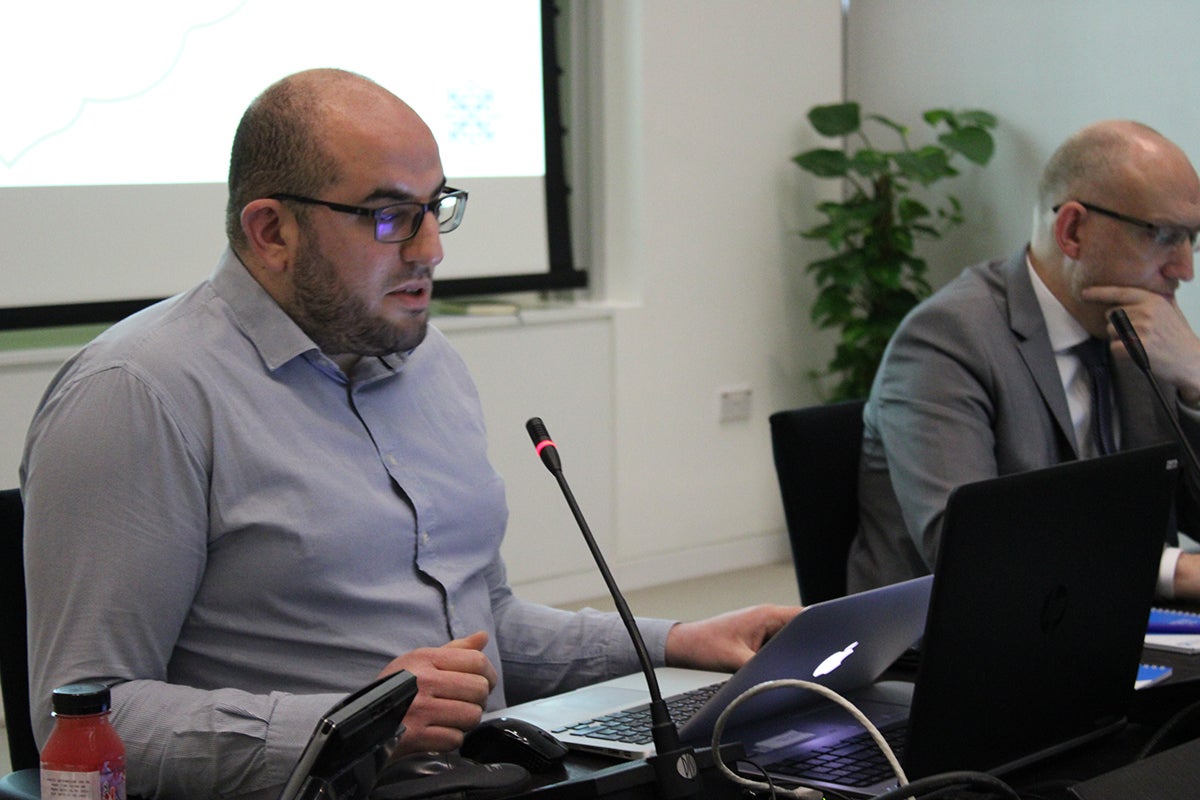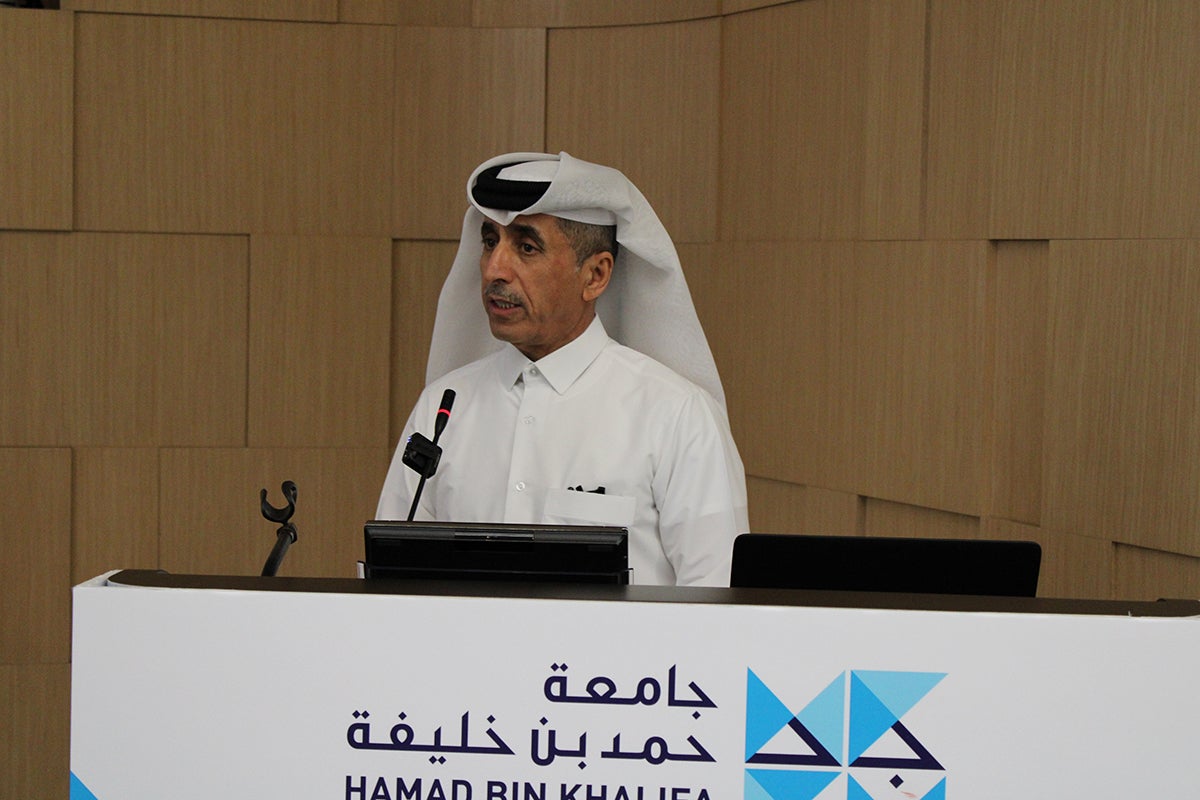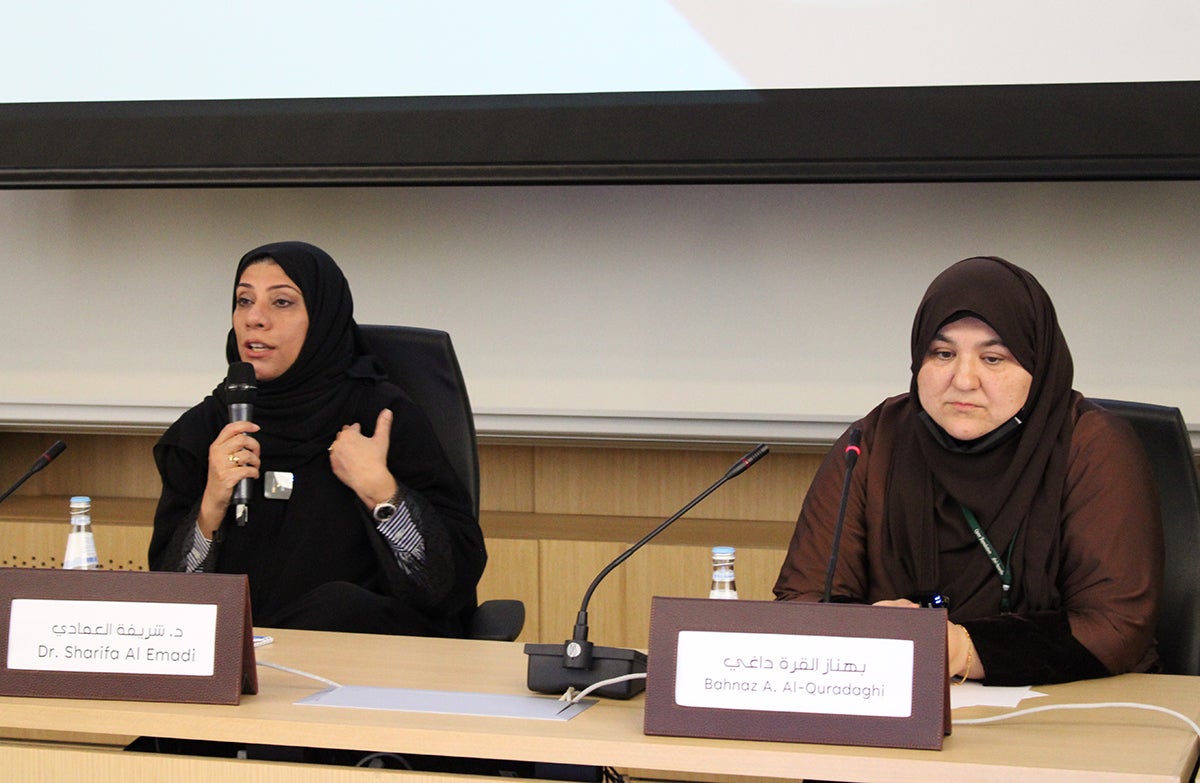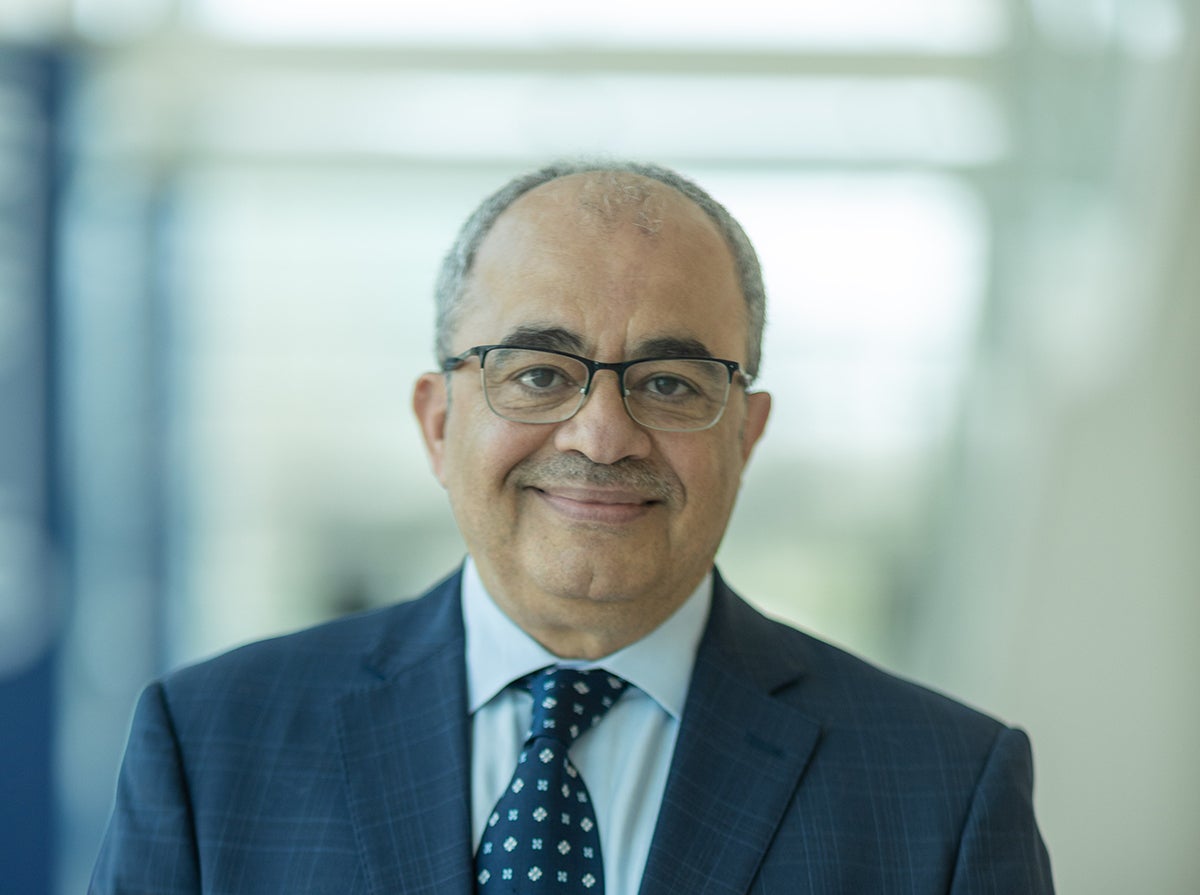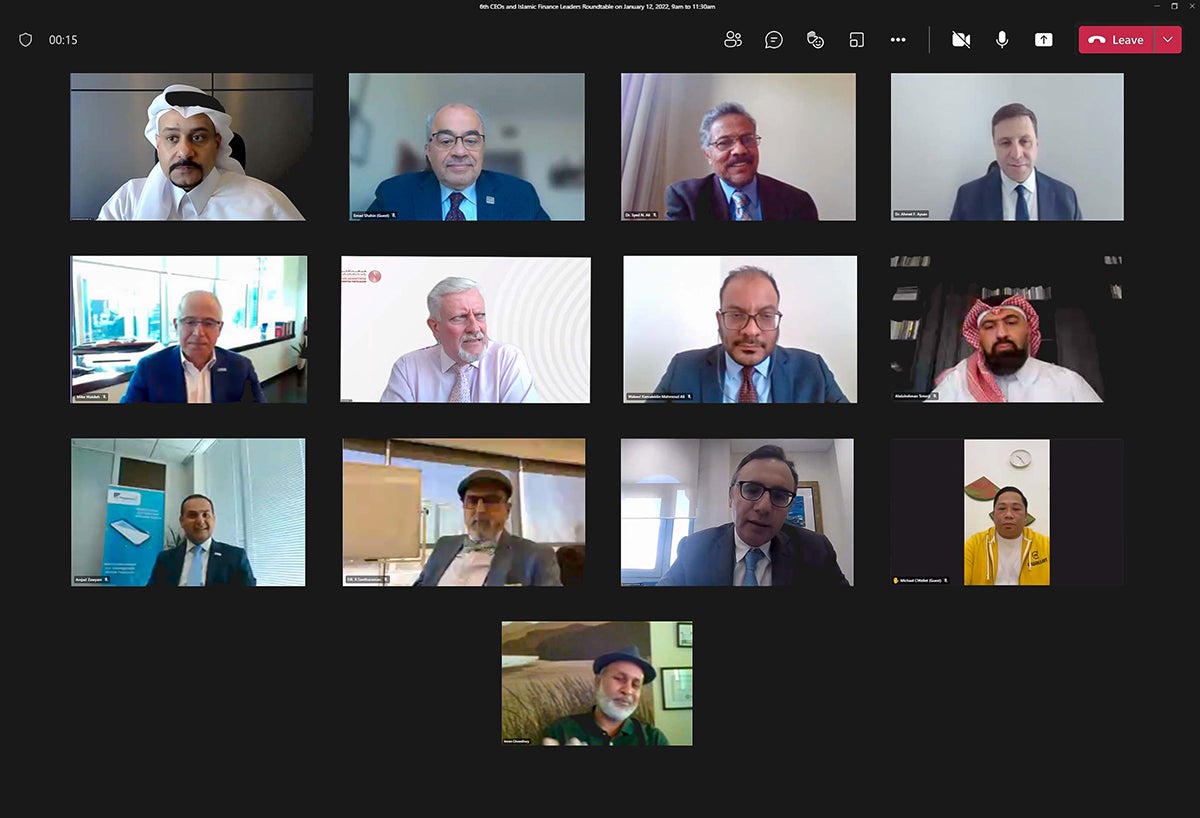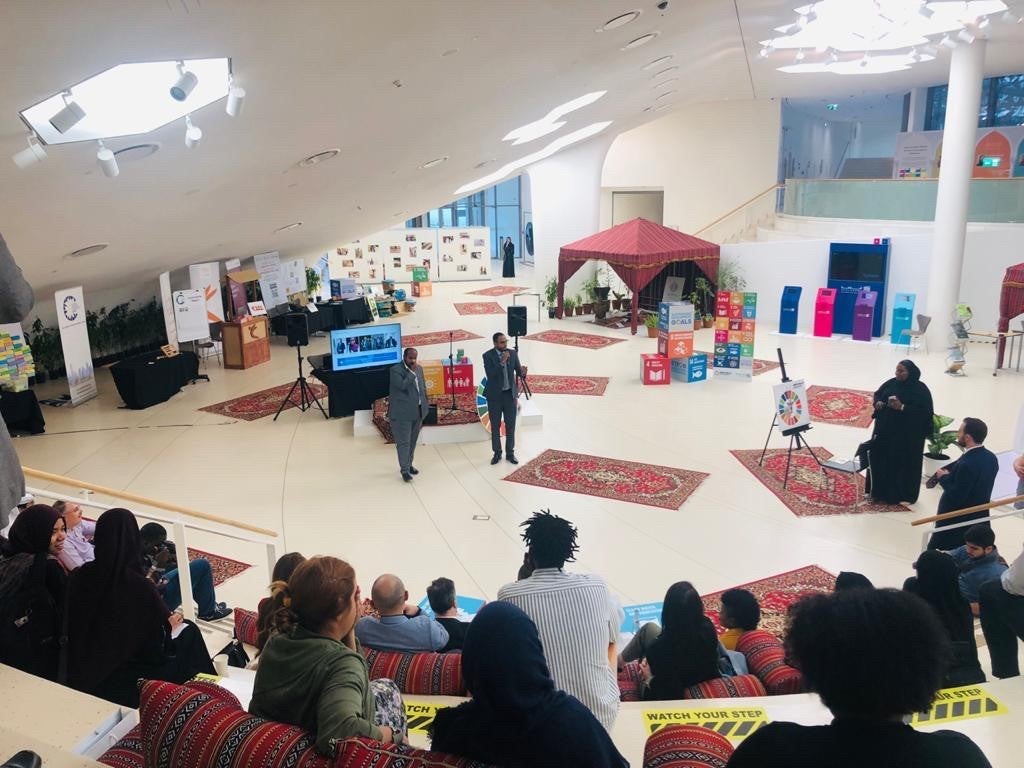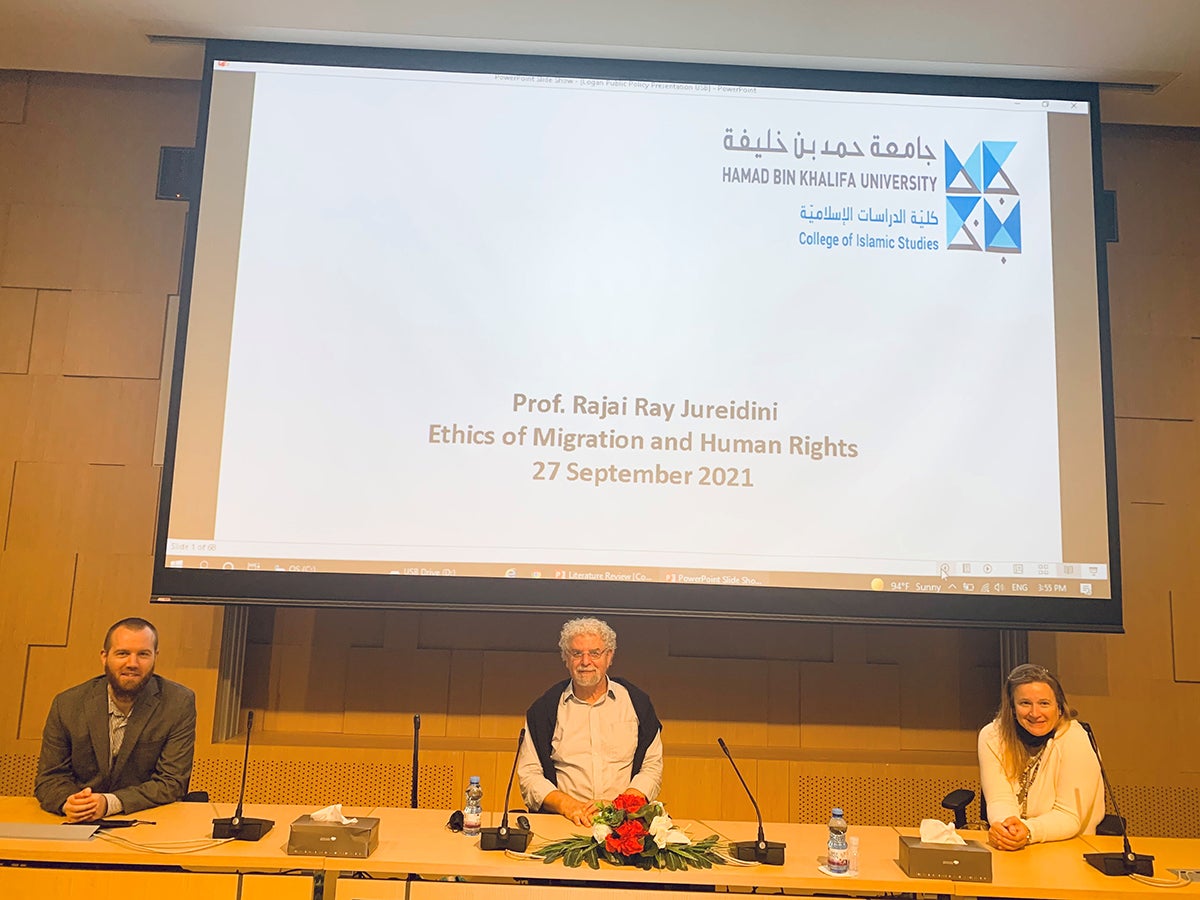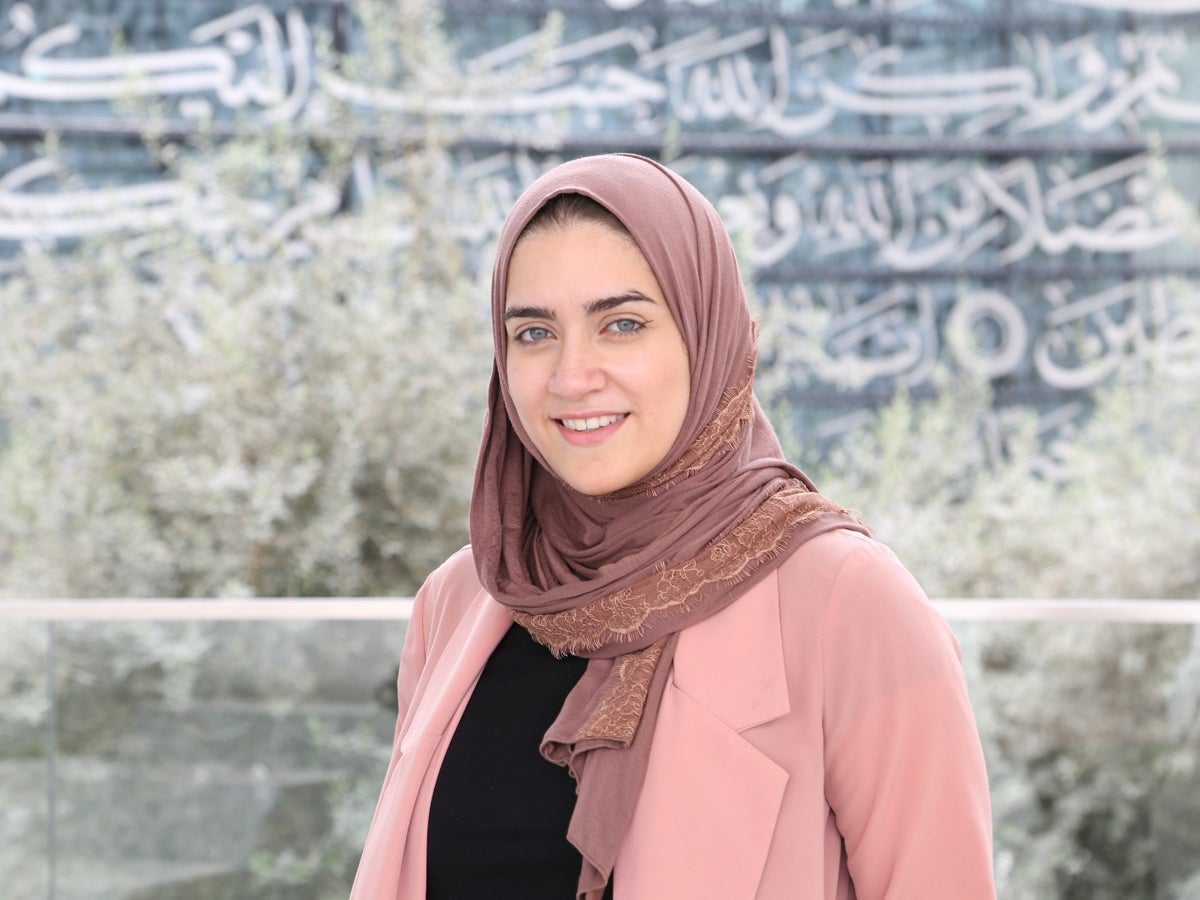
Online Sustainable Development Goals Bootcamp Integrates Youth
Boot camp presents a creative space to design new tools for educating the SDGs
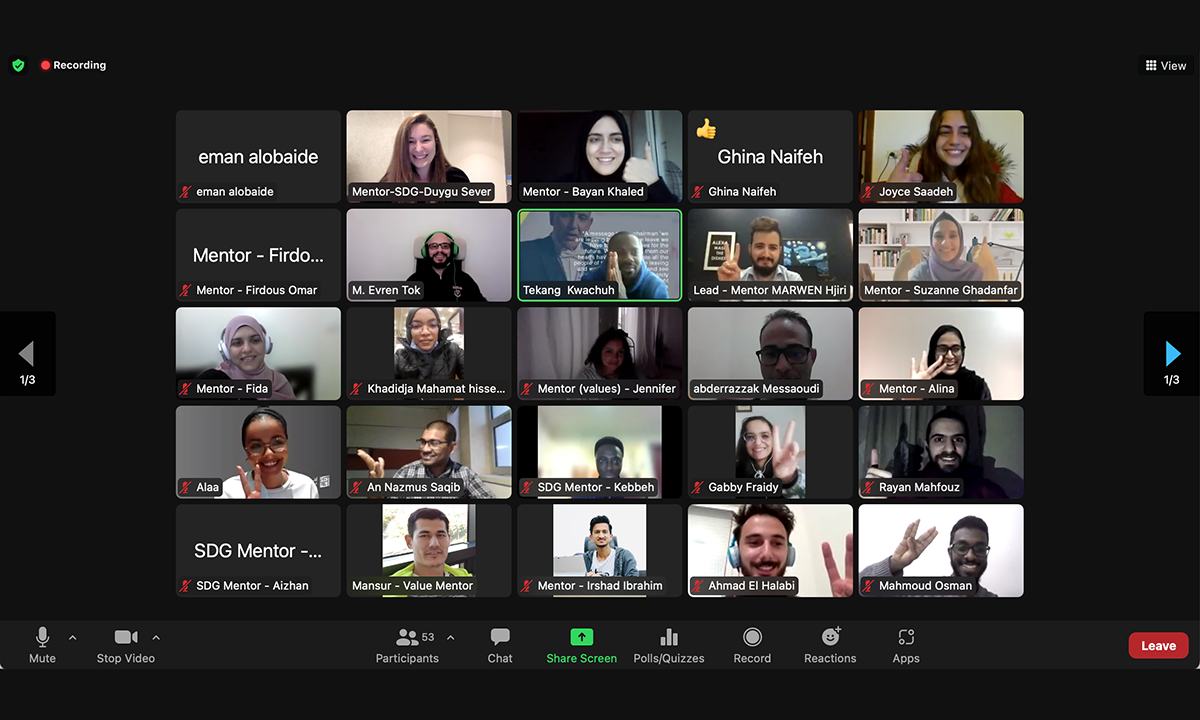
Maker Majlis at the College of Islamic Studies (CIS), in collaboration with Qatar Scientific Club, held an ‘SDG Education and Design Boot Camp’ on January 29, where participants learned, explored, and developed educational tools to teach the United Nations Sustainable Development Goals (UN-SDGs). The interactive boot camp is part of the major Qatar National Research Fund cluster grant “SDG Education in Qatar” and the first workshop of its kind designed to create SDG-related educational tools.
Open to anyone taking an active role in the pursuit of the SDGs or their education, the initiative attracted over 350 applications. Out of the 50 participants selected, 40 were Qatar-based, nearly half of whom were Qatari nationals, and 10 from several different countries.
The boot camp had five stages and focus areas: Explore - SDGs, Connect - Values, Ideate - Content, Create - Concept, and Present - Outcome. An interactive environment ensured a unique, inclusive, and constructive learning experience. Participants had the opportunity to work with 12 mentors during each of the stages.
The program featured academics and practitioners in sustainable development, including Engineer Rashid Hassan Al-Rahimi, Executive Director of Qatar Scientific Club, and Dr. Evren Tok, Assistant Dean of Innovation and Community Engagement, and Associate Professor of Islam and Global Affairs at CIS. Speakers also represented the collaborating organizations: Carnegie Mellon University in Qatar, Akhlaquna, Greener Future, SDGeneration, and Qur’anic Botanic Gardens. A “Creativity Crash Course” by Laeticia Doultremont, a talk on design thinking by Fida Nasr Abu Hamda, and UX design training by Marwen Hjiri and Teamwork, were part of the boot camp’s training, workshops, brainstorming sessions, and teamwork activities.
During the final (Outcome) stage, five teams each presented an educational tool in the form of designed social media post templates. The first place winners received a cash prize award of QAR 5,000 and the team in second place received free workshops and training to be delivered by Qatar Scientific Club.
Speaking after the event, Dr. Tok said: “Education is both a stand-alone goal and a means of attaining all the other SDGs. Given its importance, it was exciting for Maker Majlis to initiate and host this creative space framed around design thinking. Our participants embraced the opportunity and generated innovative User Experience (UX) designs for value-laden, human-centered educational responses to meet the global goals. The ongoing support of Qatar National Research Fund, our main event partner Qatar Scientific Club, and collaborators made it possible to deliver a dynamic event and we look forward to seeing the impact.”
For more information on the College of Islamic Studies at HBKU and its Maker Majlis platform, please visit cis.hbku.edu.qa. The deadline to apply to HBKU’s wide-ranging programs is March 15, 2022.
Related News
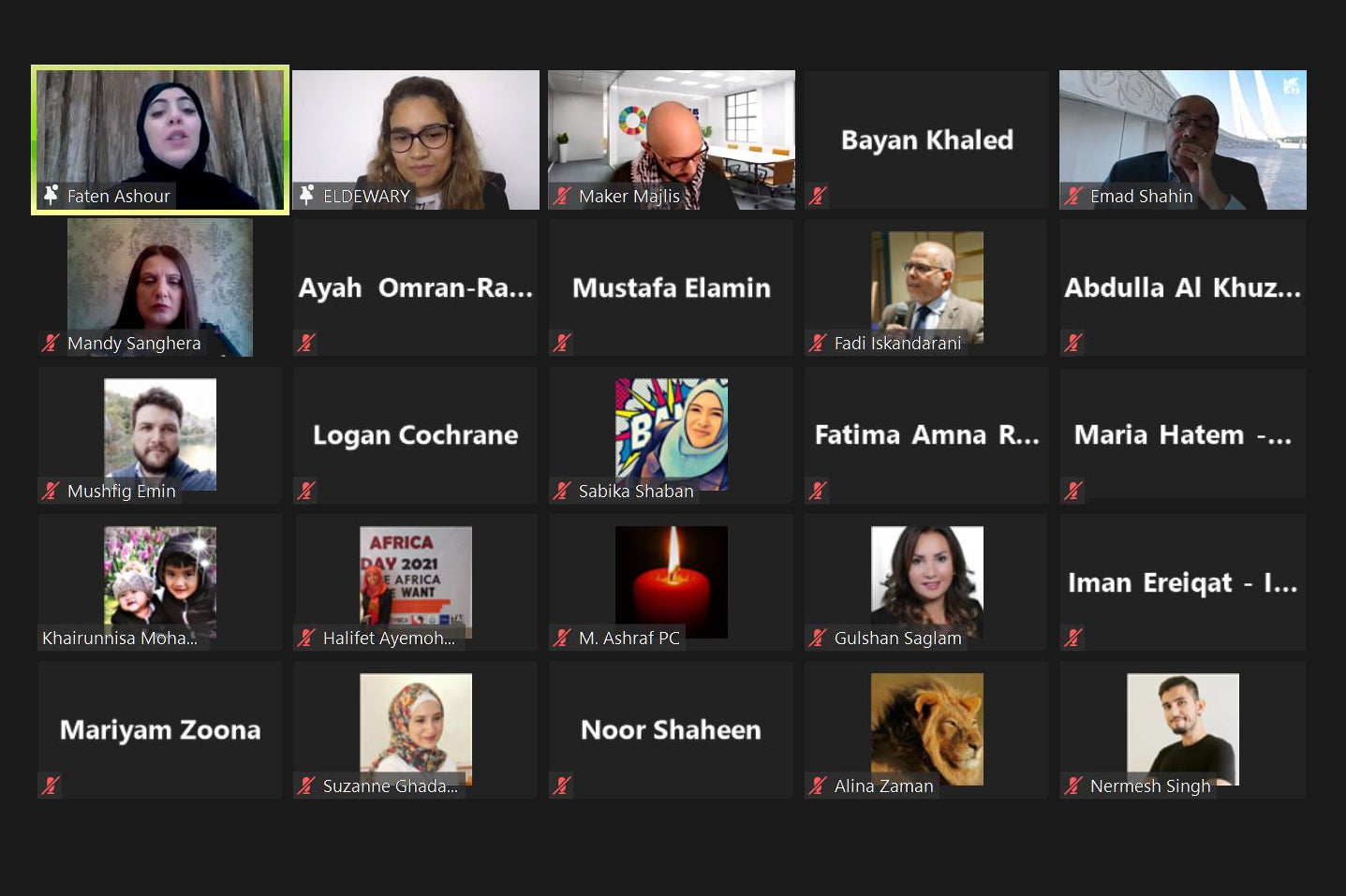
CIS Holds Maker Majlis World Refugee Day Event to Examine Lived Experiences and Advocate for Global Solutions
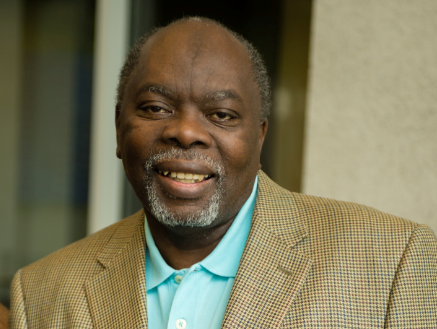
CIS Launches Project to Develop Uniquely Comprehensive Source on Islamic Reform
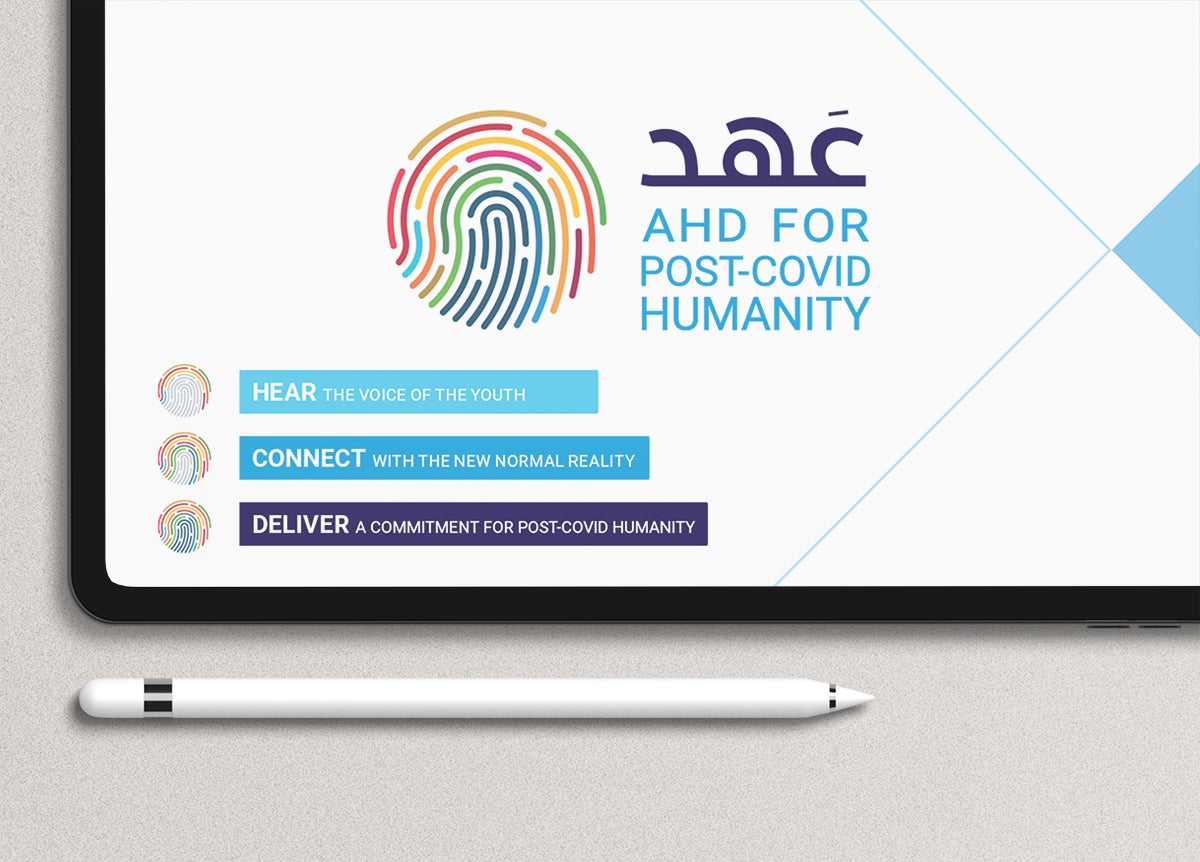
Hamad Bin Khalifa University’s DPCH Initiative Gathers Global Youth to Pledge on Designing a Post-COVID Humanity
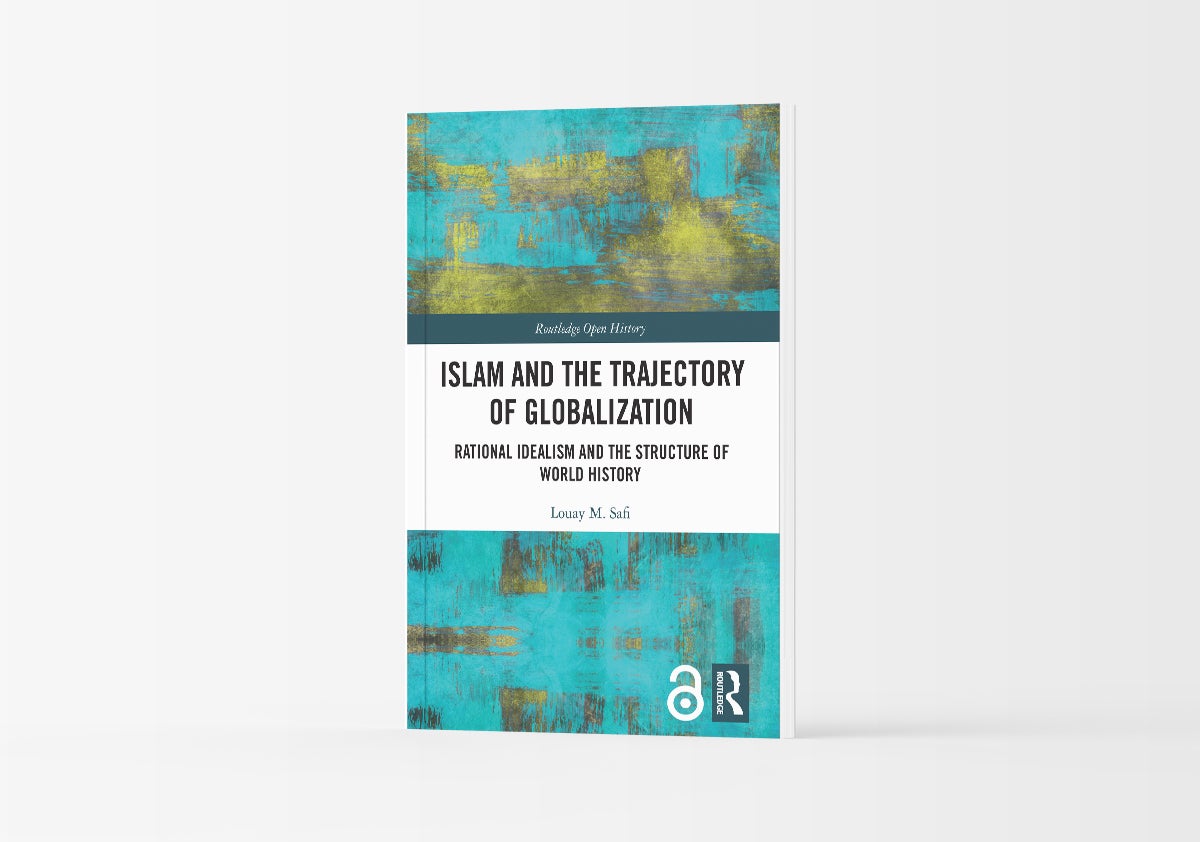
Professor at HBKU’s College of Islamic Studies Publishes New Open Access Book on Islam, Globalization, and World History
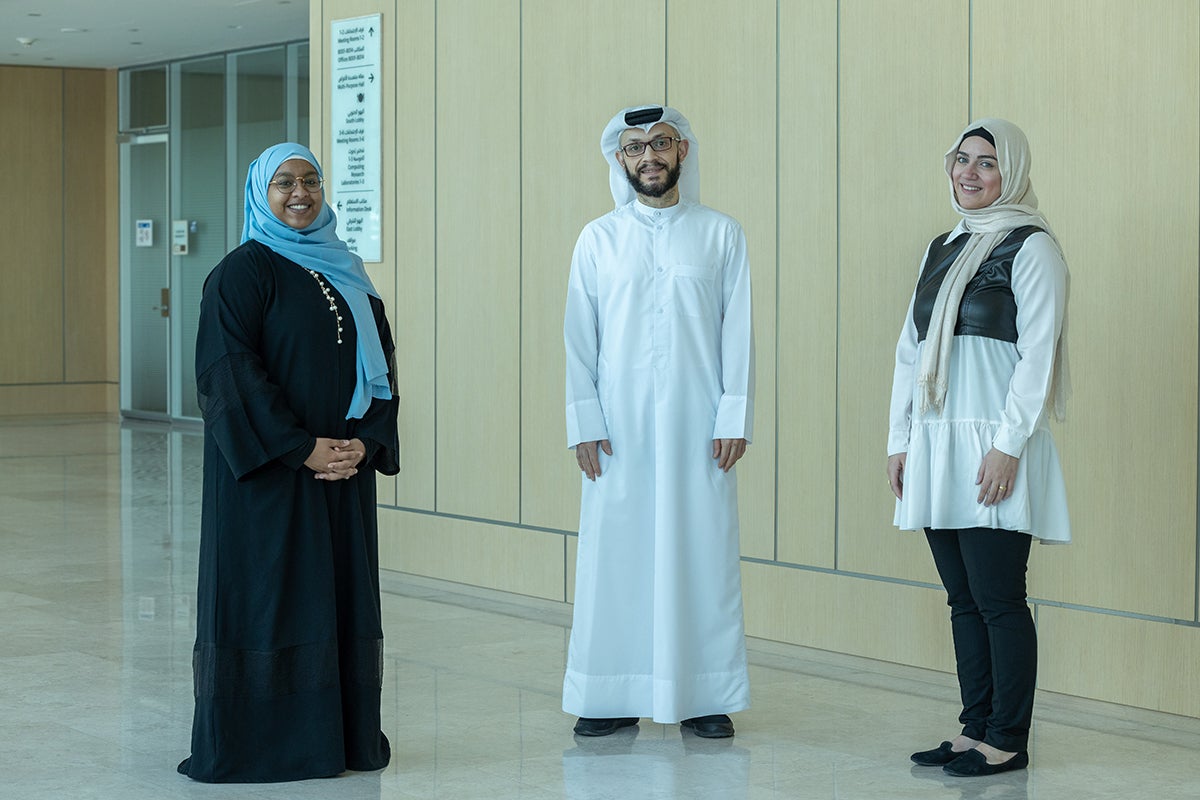
Reframing Youth Engagement and the Science-Faith-Innovation Nexus: The Case of Schifa

CIS Holds Maker Majlis World Refugee Day Event to Examine Lived Experiences and Advocate for Global Solutions

CIS Launches Project to Develop Uniquely Comprehensive Source on Islamic Reform

Hamad Bin Khalifa University’s DPCH Initiative Gathers Global Youth to Pledge on Designing a Post-COVID Humanity

Professor at HBKU’s College of Islamic Studies Publishes New Open Access Book on Islam, Globalization, and World History

Reframing Youth Engagement and the Science-Faith-Innovation Nexus: The Case of Schifa

CIS Holds Maker Majlis World Refugee Day Event to Examine Lived Experiences and Advocate for Global Solutions

CIS Launches Project to Develop Uniquely Comprehensive Source on Islamic Reform

Hamad Bin Khalifa University’s DPCH Initiative Gathers Global Youth to Pledge on Designing a Post-COVID Humanity

Professor at HBKU’s College of Islamic Studies Publishes New Open Access Book on Islam, Globalization, and World History

Reframing Youth Engagement and the Science-Faith-Innovation Nexus: The Case of Schifa

CIS Holds Maker Majlis World Refugee Day Event to Examine Lived Experiences and Advocate for Global Solutions

CIS Launches Project to Develop Uniquely Comprehensive Source on Islamic Reform

Hamad Bin Khalifa University’s DPCH Initiative Gathers Global Youth to Pledge on Designing a Post-COVID Humanity

Professor at HBKU’s College of Islamic Studies Publishes New Open Access Book on Islam, Globalization, and World History

Reframing Youth Engagement and the Science-Faith-Innovation Nexus: The Case of Schifa

CIS Holds Maker Majlis World Refugee Day Event to Examine Lived Experiences and Advocate for Global Solutions

CIS Launches Project to Develop Uniquely Comprehensive Source on Islamic Reform

Hamad Bin Khalifa University’s DPCH Initiative Gathers Global Youth to Pledge on Designing a Post-COVID Humanity

Professor at HBKU’s College of Islamic Studies Publishes New Open Access Book on Islam, Globalization, and World History

Reframing Youth Engagement and the Science-Faith-Innovation Nexus: The Case of Schifa

CIS Holds Maker Majlis World Refugee Day Event to Examine Lived Experiences and Advocate for Global Solutions

CIS Launches Project to Develop Uniquely Comprehensive Source on Islamic Reform

Hamad Bin Khalifa University’s DPCH Initiative Gathers Global Youth to Pledge on Designing a Post-COVID Humanity

Professor at HBKU’s College of Islamic Studies Publishes New Open Access Book on Islam, Globalization, and World History

Reframing Youth Engagement and the Science-Faith-Innovation Nexus: The Case of Schifa

CIS Holds Maker Majlis World Refugee Day Event to Examine Lived Experiences and Advocate for Global Solutions

CIS Launches Project to Develop Uniquely Comprehensive Source on Islamic Reform

Hamad Bin Khalifa University’s DPCH Initiative Gathers Global Youth to Pledge on Designing a Post-COVID Humanity

Professor at HBKU’s College of Islamic Studies Publishes New Open Access Book on Islam, Globalization, and World History

Reframing Youth Engagement and the Science-Faith-Innovation Nexus: The Case of Schifa

CIS Holds Maker Majlis World Refugee Day Event to Examine Lived Experiences and Advocate for Global Solutions

CIS Launches Project to Develop Uniquely Comprehensive Source on Islamic Reform

Hamad Bin Khalifa University’s DPCH Initiative Gathers Global Youth to Pledge on Designing a Post-COVID Humanity

Professor at HBKU’s College of Islamic Studies Publishes New Open Access Book on Islam, Globalization, and World History

Reframing Youth Engagement and the Science-Faith-Innovation Nexus: The Case of Schifa

CIS Holds Maker Majlis World Refugee Day Event to Examine Lived Experiences and Advocate for Global Solutions

CIS Launches Project to Develop Uniquely Comprehensive Source on Islamic Reform

Hamad Bin Khalifa University’s DPCH Initiative Gathers Global Youth to Pledge on Designing a Post-COVID Humanity

Professor at HBKU’s College of Islamic Studies Publishes New Open Access Book on Islam, Globalization, and World History

Reframing Youth Engagement and the Science-Faith-Innovation Nexus: The Case of Schifa

CIS Holds Maker Majlis World Refugee Day Event to Examine Lived Experiences and Advocate for Global Solutions

CIS Launches Project to Develop Uniquely Comprehensive Source on Islamic Reform

Hamad Bin Khalifa University’s DPCH Initiative Gathers Global Youth to Pledge on Designing a Post-COVID Humanity

Professor at HBKU’s College of Islamic Studies Publishes New Open Access Book on Islam, Globalization, and World History

Reframing Youth Engagement and the Science-Faith-Innovation Nexus: The Case of Schifa

CIS Holds Maker Majlis World Refugee Day Event to Examine Lived Experiences and Advocate for Global Solutions

CIS Launches Project to Develop Uniquely Comprehensive Source on Islamic Reform

Hamad Bin Khalifa University’s DPCH Initiative Gathers Global Youth to Pledge on Designing a Post-COVID Humanity

Professor at HBKU’s College of Islamic Studies Publishes New Open Access Book on Islam, Globalization, and World History

Reframing Youth Engagement and the Science-Faith-Innovation Nexus: The Case of Schifa

CIS Holds Maker Majlis World Refugee Day Event to Examine Lived Experiences and Advocate for Global Solutions

CIS Launches Project to Develop Uniquely Comprehensive Source on Islamic Reform

Hamad Bin Khalifa University’s DPCH Initiative Gathers Global Youth to Pledge on Designing a Post-COVID Humanity

Professor at HBKU’s College of Islamic Studies Publishes New Open Access Book on Islam, Globalization, and World History

Reframing Youth Engagement and the Science-Faith-Innovation Nexus: The Case of Schifa

CIS Holds Maker Majlis World Refugee Day Event to Examine Lived Experiences and Advocate for Global Solutions

CIS Launches Project to Develop Uniquely Comprehensive Source on Islamic Reform

Hamad Bin Khalifa University’s DPCH Initiative Gathers Global Youth to Pledge on Designing a Post-COVID Humanity

Professor at HBKU’s College of Islamic Studies Publishes New Open Access Book on Islam, Globalization, and World History

Reframing Youth Engagement and the Science-Faith-Innovation Nexus: The Case of Schifa

CIS Holds Maker Majlis World Refugee Day Event to Examine Lived Experiences and Advocate for Global Solutions

CIS Launches Project to Develop Uniquely Comprehensive Source on Islamic Reform

Hamad Bin Khalifa University’s DPCH Initiative Gathers Global Youth to Pledge on Designing a Post-COVID Humanity

Professor at HBKU’s College of Islamic Studies Publishes New Open Access Book on Islam, Globalization, and World History

Reframing Youth Engagement and the Science-Faith-Innovation Nexus: The Case of Schifa

CIS Holds Maker Majlis World Refugee Day Event to Examine Lived Experiences and Advocate for Global Solutions

CIS Launches Project to Develop Uniquely Comprehensive Source on Islamic Reform

Hamad Bin Khalifa University’s DPCH Initiative Gathers Global Youth to Pledge on Designing a Post-COVID Humanity

Professor at HBKU’s College of Islamic Studies Publishes New Open Access Book on Islam, Globalization, and World History

Reframing Youth Engagement and the Science-Faith-Innovation Nexus: The Case of Schifa

CIS Holds Maker Majlis World Refugee Day Event to Examine Lived Experiences and Advocate for Global Solutions

CIS Launches Project to Develop Uniquely Comprehensive Source on Islamic Reform

Hamad Bin Khalifa University’s DPCH Initiative Gathers Global Youth to Pledge on Designing a Post-COVID Humanity

Professor at HBKU’s College of Islamic Studies Publishes New Open Access Book on Islam, Globalization, and World History

Reframing Youth Engagement and the Science-Faith-Innovation Nexus: The Case of Schifa

CIS Holds Maker Majlis World Refugee Day Event to Examine Lived Experiences and Advocate for Global Solutions

CIS Launches Project to Develop Uniquely Comprehensive Source on Islamic Reform

Hamad Bin Khalifa University’s DPCH Initiative Gathers Global Youth to Pledge on Designing a Post-COVID Humanity

Professor at HBKU’s College of Islamic Studies Publishes New Open Access Book on Islam, Globalization, and World History

Reframing Youth Engagement and the Science-Faith-Innovation Nexus: The Case of Schifa

CIS Holds Maker Majlis World Refugee Day Event to Examine Lived Experiences and Advocate for Global Solutions

CIS Launches Project to Develop Uniquely Comprehensive Source on Islamic Reform

Hamad Bin Khalifa University’s DPCH Initiative Gathers Global Youth to Pledge on Designing a Post-COVID Humanity

Professor at HBKU’s College of Islamic Studies Publishes New Open Access Book on Islam, Globalization, and World History

Reframing Youth Engagement and the Science-Faith-Innovation Nexus: The Case of Schifa

CIS Holds Maker Majlis World Refugee Day Event to Examine Lived Experiences and Advocate for Global Solutions

CIS Launches Project to Develop Uniquely Comprehensive Source on Islamic Reform

Hamad Bin Khalifa University’s DPCH Initiative Gathers Global Youth to Pledge on Designing a Post-COVID Humanity

Professor at HBKU’s College of Islamic Studies Publishes New Open Access Book on Islam, Globalization, and World History

Reframing Youth Engagement and the Science-Faith-Innovation Nexus: The Case of Schifa

CIS Holds Maker Majlis World Refugee Day Event to Examine Lived Experiences and Advocate for Global Solutions

CIS Launches Project to Develop Uniquely Comprehensive Source on Islamic Reform

Hamad Bin Khalifa University’s DPCH Initiative Gathers Global Youth to Pledge on Designing a Post-COVID Humanity

Professor at HBKU’s College of Islamic Studies Publishes New Open Access Book on Islam, Globalization, and World History

Reframing Youth Engagement and the Science-Faith-Innovation Nexus: The Case of Schifa

CIS Holds Maker Majlis World Refugee Day Event to Examine Lived Experiences and Advocate for Global Solutions

CIS Launches Project to Develop Uniquely Comprehensive Source on Islamic Reform

Hamad Bin Khalifa University’s DPCH Initiative Gathers Global Youth to Pledge on Designing a Post-COVID Humanity

Professor at HBKU’s College of Islamic Studies Publishes New Open Access Book on Islam, Globalization, and World History

Reframing Youth Engagement and the Science-Faith-Innovation Nexus: The Case of Schifa

CIS Holds Maker Majlis World Refugee Day Event to Examine Lived Experiences and Advocate for Global Solutions

CIS Launches Project to Develop Uniquely Comprehensive Source on Islamic Reform

Hamad Bin Khalifa University’s DPCH Initiative Gathers Global Youth to Pledge on Designing a Post-COVID Humanity

Professor at HBKU’s College of Islamic Studies Publishes New Open Access Book on Islam, Globalization, and World History

Reframing Youth Engagement and the Science-Faith-Innovation Nexus: The Case of Schifa

CIS Holds Maker Majlis World Refugee Day Event to Examine Lived Experiences and Advocate for Global Solutions

CIS Launches Project to Develop Uniquely Comprehensive Source on Islamic Reform

Hamad Bin Khalifa University’s DPCH Initiative Gathers Global Youth to Pledge on Designing a Post-COVID Humanity

Professor at HBKU’s College of Islamic Studies Publishes New Open Access Book on Islam, Globalization, and World History

Reframing Youth Engagement and the Science-Faith-Innovation Nexus: The Case of Schifa

CIS Holds Maker Majlis World Refugee Day Event to Examine Lived Experiences and Advocate for Global Solutions

CIS Launches Project to Develop Uniquely Comprehensive Source on Islamic Reform

Hamad Bin Khalifa University’s DPCH Initiative Gathers Global Youth to Pledge on Designing a Post-COVID Humanity

Professor at HBKU’s College of Islamic Studies Publishes New Open Access Book on Islam, Globalization, and World History

Reframing Youth Engagement and the Science-Faith-Innovation Nexus: The Case of Schifa

CIS Holds Maker Majlis World Refugee Day Event to Examine Lived Experiences and Advocate for Global Solutions

CIS Launches Project to Develop Uniquely Comprehensive Source on Islamic Reform

Hamad Bin Khalifa University’s DPCH Initiative Gathers Global Youth to Pledge on Designing a Post-COVID Humanity

Professor at HBKU’s College of Islamic Studies Publishes New Open Access Book on Islam, Globalization, and World History

Reframing Youth Engagement and the Science-Faith-Innovation Nexus: The Case of Schifa

CIS Holds Maker Majlis World Refugee Day Event to Examine Lived Experiences and Advocate for Global Solutions

CIS Launches Project to Develop Uniquely Comprehensive Source on Islamic Reform

Hamad Bin Khalifa University’s DPCH Initiative Gathers Global Youth to Pledge on Designing a Post-COVID Humanity

Professor at HBKU’s College of Islamic Studies Publishes New Open Access Book on Islam, Globalization, and World History

Reframing Youth Engagement and the Science-Faith-Innovation Nexus: The Case of Schifa

CIS Holds Maker Majlis World Refugee Day Event to Examine Lived Experiences and Advocate for Global Solutions

CIS Launches Project to Develop Uniquely Comprehensive Source on Islamic Reform

Hamad Bin Khalifa University’s DPCH Initiative Gathers Global Youth to Pledge on Designing a Post-COVID Humanity

Professor at HBKU’s College of Islamic Studies Publishes New Open Access Book on Islam, Globalization, and World History

Reframing Youth Engagement and the Science-Faith-Innovation Nexus: The Case of Schifa

CIS Holds Maker Majlis World Refugee Day Event to Examine Lived Experiences and Advocate for Global Solutions

CIS Launches Project to Develop Uniquely Comprehensive Source on Islamic Reform

Hamad Bin Khalifa University’s DPCH Initiative Gathers Global Youth to Pledge on Designing a Post-COVID Humanity

Professor at HBKU’s College of Islamic Studies Publishes New Open Access Book on Islam, Globalization, and World History

Reframing Youth Engagement and the Science-Faith-Innovation Nexus: The Case of Schifa

CIS Holds Maker Majlis World Refugee Day Event to Examine Lived Experiences and Advocate for Global Solutions

CIS Launches Project to Develop Uniquely Comprehensive Source on Islamic Reform

Hamad Bin Khalifa University’s DPCH Initiative Gathers Global Youth to Pledge on Designing a Post-COVID Humanity

Professor at HBKU’s College of Islamic Studies Publishes New Open Access Book on Islam, Globalization, and World History

Reframing Youth Engagement and the Science-Faith-Innovation Nexus: The Case of Schifa

CIS Holds Maker Majlis World Refugee Day Event to Examine Lived Experiences and Advocate for Global Solutions

CIS Launches Project to Develop Uniquely Comprehensive Source on Islamic Reform

Hamad Bin Khalifa University’s DPCH Initiative Gathers Global Youth to Pledge on Designing a Post-COVID Humanity

Professor at HBKU’s College of Islamic Studies Publishes New Open Access Book on Islam, Globalization, and World History

Reframing Youth Engagement and the Science-Faith-Innovation Nexus: The Case of Schifa

CIS Holds Maker Majlis World Refugee Day Event to Examine Lived Experiences and Advocate for Global Solutions

CIS Launches Project to Develop Uniquely Comprehensive Source on Islamic Reform

Hamad Bin Khalifa University’s DPCH Initiative Gathers Global Youth to Pledge on Designing a Post-COVID Humanity

Professor at HBKU’s College of Islamic Studies Publishes New Open Access Book on Islam, Globalization, and World History

Reframing Youth Engagement and the Science-Faith-Innovation Nexus: The Case of Schifa

CIS Holds Maker Majlis World Refugee Day Event to Examine Lived Experiences and Advocate for Global Solutions

CIS Launches Project to Develop Uniquely Comprehensive Source on Islamic Reform

Hamad Bin Khalifa University’s DPCH Initiative Gathers Global Youth to Pledge on Designing a Post-COVID Humanity

Professor at HBKU’s College of Islamic Studies Publishes New Open Access Book on Islam, Globalization, and World History

Reframing Youth Engagement and the Science-Faith-Innovation Nexus: The Case of Schifa

CIS Holds Maker Majlis World Refugee Day Event to Examine Lived Experiences and Advocate for Global Solutions

CIS Launches Project to Develop Uniquely Comprehensive Source on Islamic Reform

Hamad Bin Khalifa University’s DPCH Initiative Gathers Global Youth to Pledge on Designing a Post-COVID Humanity

Professor at HBKU’s College of Islamic Studies Publishes New Open Access Book on Islam, Globalization, and World History

Reframing Youth Engagement and the Science-Faith-Innovation Nexus: The Case of Schifa

CIS Holds Maker Majlis World Refugee Day Event to Examine Lived Experiences and Advocate for Global Solutions

CIS Launches Project to Develop Uniquely Comprehensive Source on Islamic Reform

Hamad Bin Khalifa University’s DPCH Initiative Gathers Global Youth to Pledge on Designing a Post-COVID Humanity

Professor at HBKU’s College of Islamic Studies Publishes New Open Access Book on Islam, Globalization, and World History

Reframing Youth Engagement and the Science-Faith-Innovation Nexus: The Case of Schifa

CIS Holds Maker Majlis World Refugee Day Event to Examine Lived Experiences and Advocate for Global Solutions

CIS Launches Project to Develop Uniquely Comprehensive Source on Islamic Reform

Hamad Bin Khalifa University’s DPCH Initiative Gathers Global Youth to Pledge on Designing a Post-COVID Humanity

Professor at HBKU’s College of Islamic Studies Publishes New Open Access Book on Islam, Globalization, and World History

Reframing Youth Engagement and the Science-Faith-Innovation Nexus: The Case of Schifa

CIS Holds Maker Majlis World Refugee Day Event to Examine Lived Experiences and Advocate for Global Solutions

CIS Launches Project to Develop Uniquely Comprehensive Source on Islamic Reform

Hamad Bin Khalifa University’s DPCH Initiative Gathers Global Youth to Pledge on Designing a Post-COVID Humanity

Professor at HBKU’s College of Islamic Studies Publishes New Open Access Book on Islam, Globalization, and World History

Reframing Youth Engagement and the Science-Faith-Innovation Nexus: The Case of Schifa

CIS Holds Maker Majlis World Refugee Day Event to Examine Lived Experiences and Advocate for Global Solutions

CIS Launches Project to Develop Uniquely Comprehensive Source on Islamic Reform

Hamad Bin Khalifa University’s DPCH Initiative Gathers Global Youth to Pledge on Designing a Post-COVID Humanity

Professor at HBKU’s College of Islamic Studies Publishes New Open Access Book on Islam, Globalization, and World History

Reframing Youth Engagement and the Science-Faith-Innovation Nexus: The Case of Schifa

CIS Holds Maker Majlis World Refugee Day Event to Examine Lived Experiences and Advocate for Global Solutions

CIS Launches Project to Develop Uniquely Comprehensive Source on Islamic Reform

Hamad Bin Khalifa University’s DPCH Initiative Gathers Global Youth to Pledge on Designing a Post-COVID Humanity

Professor at HBKU’s College of Islamic Studies Publishes New Open Access Book on Islam, Globalization, and World History

Reframing Youth Engagement and the Science-Faith-Innovation Nexus: The Case of Schifa

CIS Holds Maker Majlis World Refugee Day Event to Examine Lived Experiences and Advocate for Global Solutions

CIS Launches Project to Develop Uniquely Comprehensive Source on Islamic Reform

Hamad Bin Khalifa University’s DPCH Initiative Gathers Global Youth to Pledge on Designing a Post-COVID Humanity

Professor at HBKU’s College of Islamic Studies Publishes New Open Access Book on Islam, Globalization, and World History

Reframing Youth Engagement and the Science-Faith-Innovation Nexus: The Case of Schifa

CIS Holds Maker Majlis World Refugee Day Event to Examine Lived Experiences and Advocate for Global Solutions

CIS Launches Project to Develop Uniquely Comprehensive Source on Islamic Reform

Hamad Bin Khalifa University’s DPCH Initiative Gathers Global Youth to Pledge on Designing a Post-COVID Humanity

Professor at HBKU’s College of Islamic Studies Publishes New Open Access Book on Islam, Globalization, and World History

Reframing Youth Engagement and the Science-Faith-Innovation Nexus: The Case of Schifa

CIS Holds Maker Majlis World Refugee Day Event to Examine Lived Experiences and Advocate for Global Solutions

CIS Launches Project to Develop Uniquely Comprehensive Source on Islamic Reform






